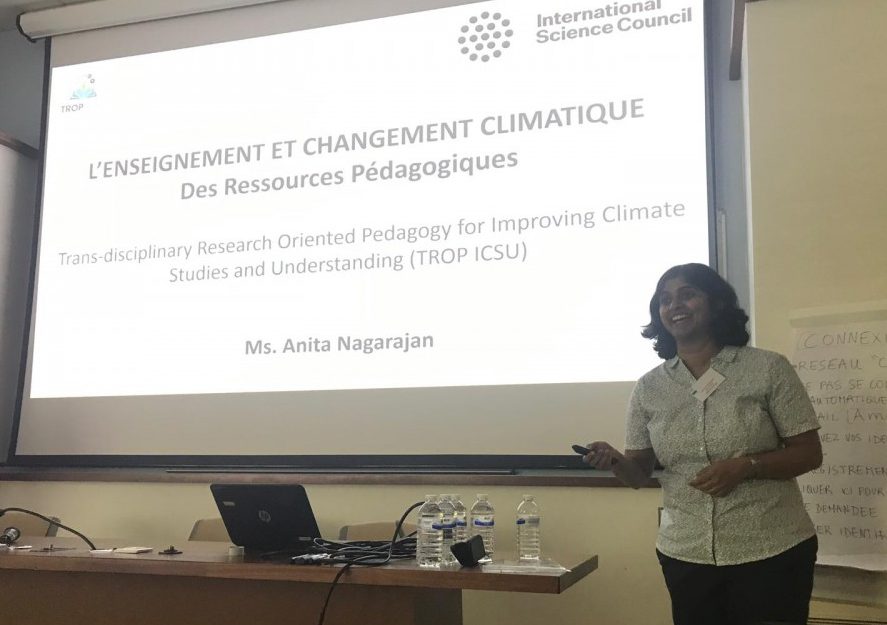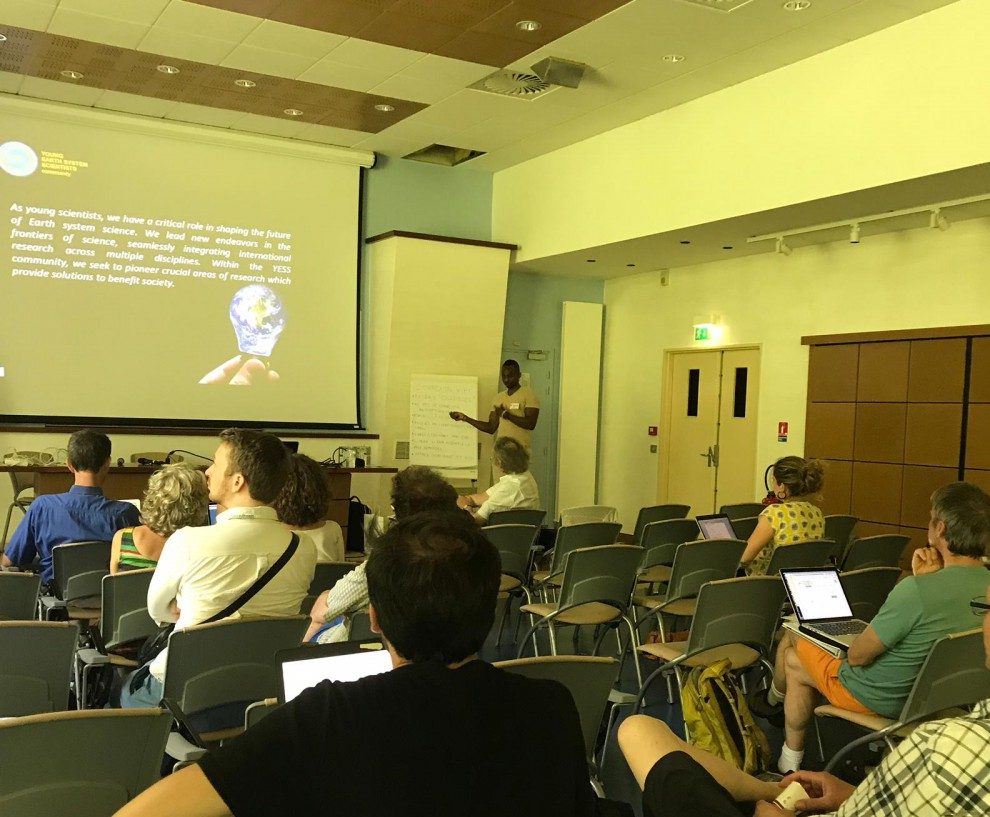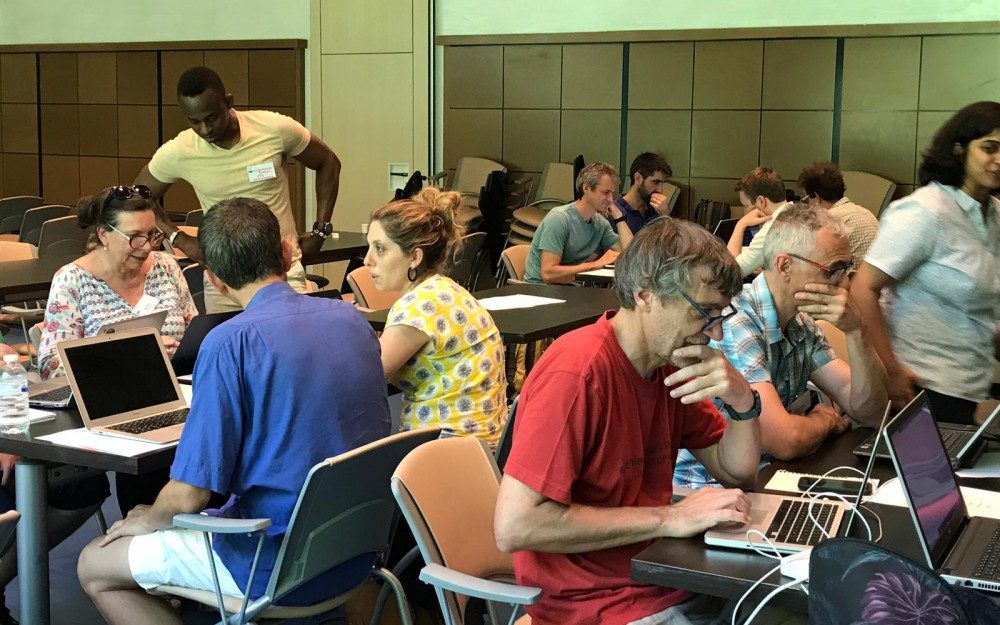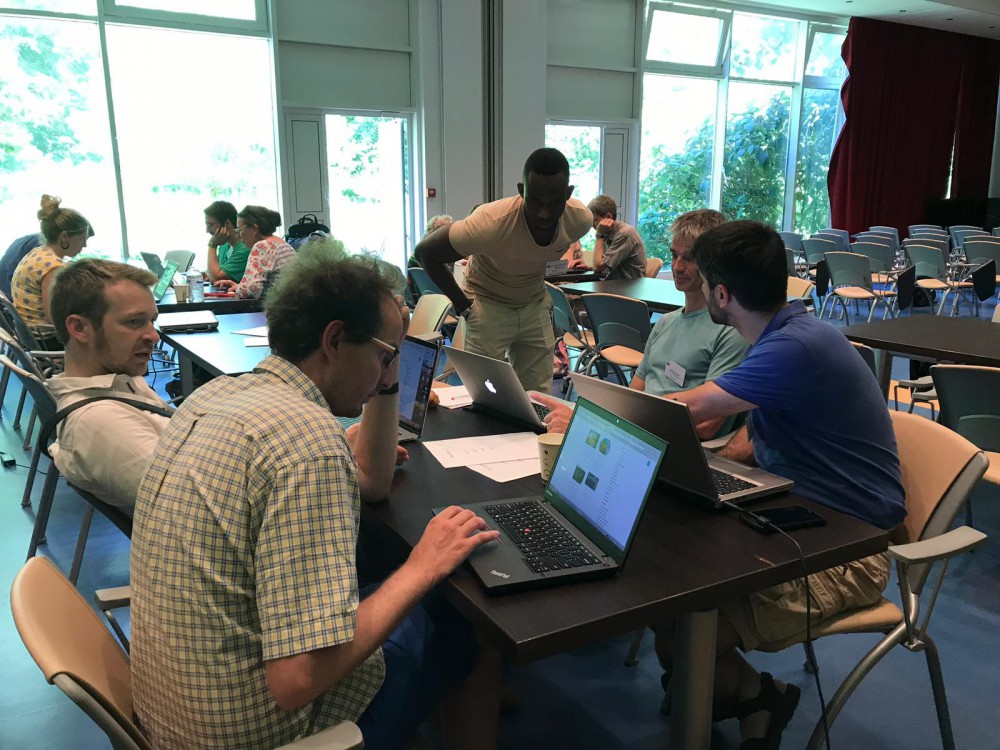Our European member Moha Diallo represented the YESS Community in the TROP-ICSU workshop, which took place on June 28th in Paris (France). Here you have his experience:
I arrived in Paris y around noon. Nathalie Fromproix, current IUBS Executive Director, picked up Anita Nagarajan, leader of TROP ICSU, and me as a scientific representative of YESS. We went to the office at the University of Paris Sud, where we met Catherine Even-Beaudoin and Jean Michel Lourtioz, both representative of the University of Paris Sud and co-organizers of the event. In that afternoon, I helped with some preparations like sorting out the attendees in order to know how many people was attending and what are their backgrounds. We divided the participants into 8 groups of 4 based on their background and in addition we try to have one english teacher in each group in order to have diversity in each group.
The workshop was on Friday and it started around 9am. In the opening we have a talk from the Dean of the University of Paris-Sud. The second session was led by Nathalie, who introduced IUBS, the start and ongoing activities of TROP ICSU.

This was followed with two presentations of Anita. In the first talk, she introduced TROP ICSU and the different steps, which led to create a climate-related tool. In her second talks, she demonstrated how one can select tools or lessons for teaching high school or undergraduate students via different choices of criteria (filtering criteria), which is make easier compared to using an online search tool. Finally, she explained how a teacher can take in hand the pedagogical tool for creating their own lesson plans using the available TROP ICSU tools.

My presentation closes the morning sessions. I presented YESS, its contribution to the TROP ICSU project. I also talked about my background, current research and teaching experience. I also linked my teaching experience with TROP ICSU tools using a fun example, demonstrating the radiative impact of Greenhouse Gases like CO2, H2O and CH4 on atmospheric surface temperature. Finally, I related the mediterranean regional precipitation changes to the impact of the drivers (stratospheric polar vortex and tropospheric amplification) in a warming climate.
After the lunch break, the participants worked in earlier organized groups, using and analyzing the tools they consider useful and relevant for their research fields. During this activity, I helped in supervising the groups (e.g. support in technical issues, answring to questions,…). It was great to see how they play with the available material and try to adapt it to the different classes. Then, every group gave a feedback which included improvements. The different backgrounds and experiences were the best ingredient for having a very fruitful workshop.

It was a rewarding experience and a nice opportinuity to go outside of my confort zone to talk to the differnet people with different background and expertise. I enjoyed exchange with most of the participants about the climate mitigate issues, the role of teachers and scientist in term of science communication and outreach.

